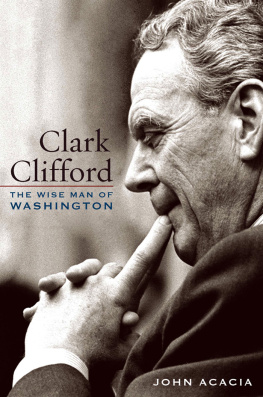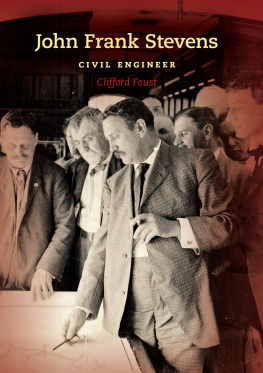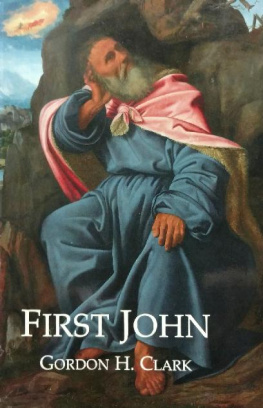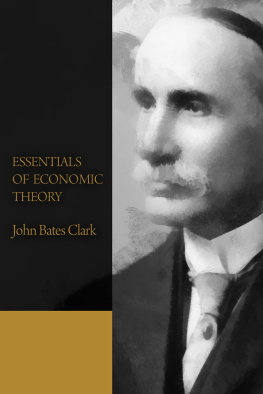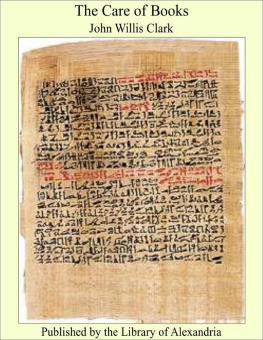Copyright 2009 by The University Press of Kentucky
Scholarly publisher for the Commonwealth, serving Bellarmine University, Berea College, Centre College of Kentucky, Eastern Kentucky University, The Filson Historical Society, Georgetown College, Kentucky Historical Society, Kentucky State University, Morehead State University, Murray State University, Northern Kentucky University, Transylvania University, University of Kentucky, University of Louisville, and Western Kentucky University.
All rights reserved.
Editorial and Sales Offices: The University Press of Kentucky 663 South Limestone Street, Lexington, Kentucky 40508-4008
www.kentuckypress.com
13 12 11 10 09 5 4 3 2 1
Library of Congress Cataloging-in-Publication Data
Acacia, John.
Clark Clifford : the wise man of Washington / John Acacia.
p. cm.
Includes bibliographical references and index.
ISBN 978-0-8131-2551-0 (hardcover : alk. paper)
1. Clifford, Clark M., 19061998. 2. StatesmenUnited StatesBiography. 3. LawyersUnited StatesBiography. 4. United StatesPolitics and government19451989. 5. United StatesForeign relations19451989. I. Title.
E840.8.C55A27 2009
973.92092dc22
[B] 2009015933
This book is printed on acid-free recycled paper meeting the requirements of the American National Standard for Permanence in Paper for Printed Library Materials.
Manufactured in the United States of America.
| Member of the Association of
American University Presses |
To my wife Karen,
the most courageous person I know
Introduction
Camp David, July 1965
President Lyndon Johnson was about to make the most fateful decision of his presidency. U.S. military personnel in Vietnam had been deployed to train and assist the South Vietnamese forces and to protect the U.S. air base at Da Nang, from which Rolling Thunder, the bombing raids against North Vietnam begun the previous February, had been launched. The pretense for the bombing was retaliation for a Vietcong attack on a U.S. installation near the city of Pleiku. As of July 1965, U.S. ground forces were not engaged in combat, and the onus for a military victory lay with the corrupt and incompetent South Vietnamese army. That was about to change.
General William C. Westmoreland had just submitted a request for a massive increase in troops100,000 men by the end of 1965, with a vague request for further troops in 1966. Johnson summoned his senior military and national security advisers, including Secretary of State Dean Rusk and Secretary of Defense Robert McNamara, to the White House to discuss Westmorelands request.
While the White House meeting was in progress another man entered the room; Johnson waved him to an empty chair. Clark Clifford, the urbane and courtly Washington lawyer and former special counsel to President Harry S. Truman, was one of Johnsons most trusted advisers, although he was not officially a member of the administration. With the possible exception of Supreme Court Justice Abe Fortas, Clifford was Johnsons most influential kitchen cabinet adviser, and as the meeting began Johnson had telephoned Cliffords office, just a few blocks away from the White House, and asked him to join them immediately. As he would do frequently, Clifford promptly heeded the presidents summons. Johnson had asked Clifford to familiarize himself with the situation in Vietnam back in May, in response to a recommendation from outgoing CIA director John McCone, who argued that the United States At this meeting, however, Clifford played the role of the silent observer.
Over the next few days, the president and his advisers discussed the possibility of escalation in Vietnam, culminating in a Sunday afternoon meeting on July 25, 1965, at Camp David. Clifford later described this session as a showdown between himself and McNamara, as he and the secretary of defense presented arguments for and against. Clifford, fingers steepled together in front of his face, spoke in his carefully measured cadence, a voice that exuded gravity and conviction. I hate this war. I do not believe we can win, he said. Clifford then warned Johnson that the casualties would be high, a prediction that later proved eerily accurate: We could lose more than 50,000 men in Vietnam.
Clifford presented his case with as much passion and persuasion as he could muster, but to no avail. Johnson approved the troop deployment, thus committing the United States to a ground war from which it would take eight years to extricate itself. More than 58,000 Americans died in Vietnam. The war divided the country along generational, economic, and racial lines, and eroded the confidence the American people had in their government. Vietnam revealed the limits of U.S. power and called into question the righteousness of its foreign policy. Clifford was a central player during a watershed moment in American history; had he prevailed in 1965, one of the darkest moments in U.S. history might have been avoided.
Clark Clifford may be the most renowned presidential adviser of the twentieth century. Although he served in an official government capacity for a relatively short period of time, he cast a very long shadow. His journey from midwestern lawyer to the corridors of power in Washington is intriguing, both because of its remarkable trajectory and because of his involvement in so many pivotal moments of twentieth-century U.S. history, including the Truman Doctrine, the recognition of Israel, the improbable Democratic presidential victory in 1948, and Vietnam. His is the story of a man who was at the right place at the right time and who had the intellect, ambition, physical presence, demeanor, and confidence necessary to become a legendary adviser of American presidents. A devoted servant of four Democratic presidents, he was also extremely adept at looking after his own interests. In addition, Clark Cliffords career traces the evolution of the modern presidency, specifically the role of the White House chief of staff or senior presidential adviser.
In the foreword to Chief of Staff: Twenty-Five Years of Managing the Presidency, presidential historian Richard E. Neustadt wrote, For half a century, since Franklin Roosevelts time, there have been in every administration some three or four senior assistants whose roles rivaled or outshone in policy significance (though not in protocol) those of even the department heads at State, Defense, Treasury or Justice, the traditional inner cabinet posts. In George W. Bushs administration, for example, former senior adviser and political strategist Karl Rove was more of a household name than onetime Secretary of the Treasury John Snow. Cliffords stature in Trumans administration was comparable to that of Roves.
The increased prominence of the presidents senior staff coincided with the centralization of power and influence within the White House. This trend, an important development in modern American government, continues to this day. Although George W. Bush promised during the 2000 campaign that he would utilize an MBA style of management, empowering the respective cabinet secretaries to run their particular departments, in reality power in his administration remained closely concentrated in the West Wing. Consider, for instance, John Snows functioning primarily as salesman for the administrations proposals rather than formulator of policy, and Secretary of Education Rod Paiges minor role in the development of the No Child Left Behind Act.




